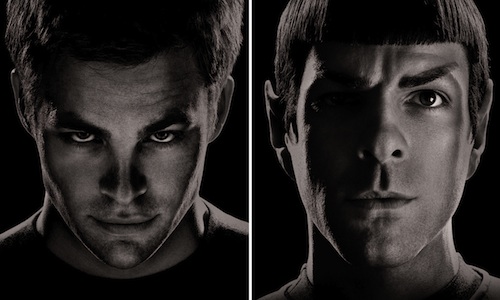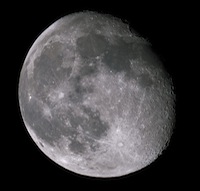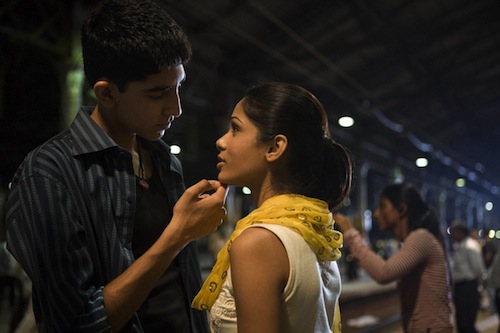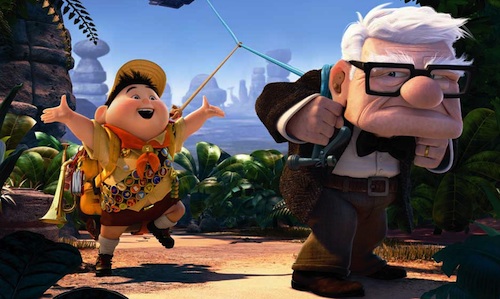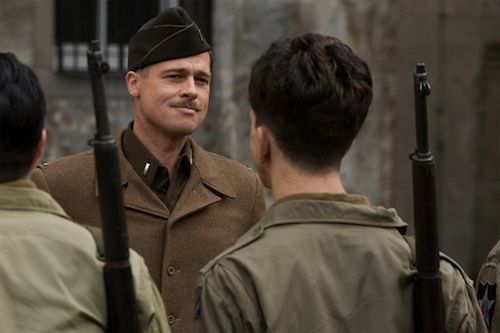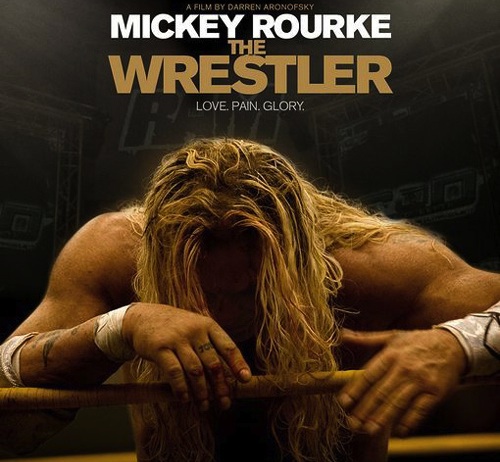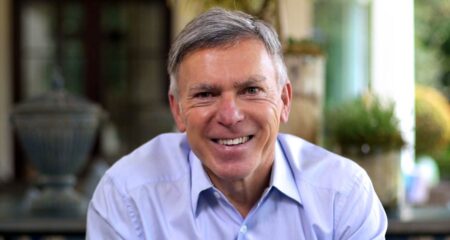TechCentral’s entertainment critic, Lance Harris, looks back at the year in cinema and names the top 10 films of 2009. His list is based only on films released to SA cinemas during the year. Many of the films that have dominated international critics’ best of 2009, like Jason Reitman’s Up In the Air, will only open in SA next year. Others, such as Kathryn Bigelow’s The Hurt Locker and Michael Haneke’s The White Ribbon, may never arrive here.
10. Star Trek
There was no shortage of big-budget science-fiction productions this year, ranging from Terminator: Salvation and Transformers: Revenge of the Fallen, through to Avatar and 2012. JJ Abrams’ rollicking, affectionate take on the Star Trek universe is the best of a poor crop, thanks to a smart script that never takes itself too seriously.
Sure, the Star Trek reboot is a bit heavier on the action and a bit lighter on the pseudo-scientific mumbo-jumbo than most Trekkies would have liked, but it’s still a sterling update of a much-loved franchise. The casting is note-perfect with the actors playing iconic characters like Kirk, Spock and Bones resurrecting the crew of the original Star Trek series in style. For pure entertainment value, few other films this year can compete.
9. Der Baader Meinhof Komplex
This year saw the SA release of a string of acclaimed films based on contemporary history — among them, Che, Milk, Valkyrie, and Frost/Nixon. Der Baader Meinhof Komplex, a German production about the Red Army Faction’s long campaign of terror, is one of the best of them.
One of the few films made outside the US or UK to enjoy a big-screen release in SA this year, Der Baader Meinhof Komplex was put together by the writing and production team responsible for Der Untergang (The Downfall).
Though not quite as good as that film, Der Baader Meinhof Komplex is an ambitious production that does justice to a complex subject.
It eschews tidy Hollywood scriptwriting conventions as it charts the formation and the rise of the gang, through to the capture, trial and suicides of the ringleaders. Some reviewers criticised it for a voyeuristic focus on the sex and violence of the era. But its meticulous period detail and convincing performances make it fascinating viewing for anyone interested in modern European history.
8. Gran Torino
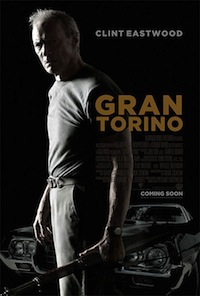 Clint Eastwood, the world’s busiest 80-year-old, directed three films that opened on SA screens this year: The Changeling, Gran Torino and Invictus. Gran Torino, the only one that Eastwood also starred in, is by far the best of the trio. Eastwood’s role in this elegant urban Western is a summation of every hard man he has played in the past — Dirty Harry, The Man with No Name, Josey Wales, even Unforgiven’s William Munny.
Clint Eastwood, the world’s busiest 80-year-old, directed three films that opened on SA screens this year: The Changeling, Gran Torino and Invictus. Gran Torino, the only one that Eastwood also starred in, is by far the best of the trio. Eastwood’s role in this elegant urban Western is a summation of every hard man he has played in the past — Dirty Harry, The Man with No Name, Josey Wales, even Unforgiven’s William Munny.
Walt, as played by Eastwood, is a lonely Korean War vet and a former blue-collar worker in Detroit’s once-booming automotive industry. He is as much as an artefact of the past as the Gran Torino of the title. He’s an unpleasant, snarling bigot out of place in the ethnically diverse working-class neighbourhood where he lives.
Eastwood’s growls and grimaces are as menacing as they were in films he made 40 years ago. But the real trick that he pulls off is convincing the audience of Walt’s redemption as he comes to empathise with his Hmong neighbours and the ordeals they suffer at the hands of the local gangs.
7. The Curious Case of Benjamin Button
The gentle whimsy of David Fincher’s The Curious Case of Benjamin Button is so far removed from the nihilism of Seven and Fight Club that it is hard to credit that it was made by the same director. But just like those earlier films, Benjamin Button is a carefully constructed and technically flawless movie from a visionary film-maker.
Similar in tone to The Big Fish or Forrest Gump, Benjamin Button is a moving meditation on loss, ageing and the circular nature of life. Brad Pitt, aided by computer-generated imagery and make-up, is persuasive as a man who is born old and ages in reverse.
Some critics found it too syrupy and complained that it is overlong at three hours. But there are enough moments of wonder in this elaborately staged film to make up for the times that it stumbles over its sentimentality and ambition.
6. Moon
Intimate, thoughtful, slow-paced and made on a shoestring budget, Moon is the exact opposite of most of the other science-fiction films that reached SA screens in 2009. Duncan Jones — son of the original Space Oddity, David Bowie — proves himself to be a director to watch with his stylish homage to the cerebral science-fiction movies of the 1970s. Sam Rockwell’s bravura performance as a solo astronaut manning a mining base on the moon underlines his status as one of Hollywood’s most underrated actors.
Read TechCentral’s review of Moon
5. Slumdog Millionaire
The posters billed Slumdog Millionaire as the feel-good film of the decade, but it didn’t make me feel good at all. Though Slumdog Millionaire ends on a happy note, it’s not enough to rinse away the ill-treatment that the film’s young protagonists endure throughout its running time.
Misleading marketing aside, Slumdog Millionaire was a stunning return to form for Danny Boyle, the British director responsible for Trainspotting and Shallow Grave. The film was the big winner at the 2009 Academy Awards, earning eight Oscars including “best picture” and “best director”. It’s a harrowing, heartbreaking and sometimes darkly humorous adaptation of Vikas Swarup’s novel, Q&A.
The worlds of Charles Dickens and Bollywood collide in a story about street urchins in Mumbai trying to escape the clutches of a Fagin-like leader of a gang of thieves and beggars. The verve that Boyle brings to the director’s chair, the charisma of its youthful Indian stars, brilliant photography and an energetic narrative make Slumdog one of the best films of the year.
4. Up
Like many Pixar films, Up is a grown-up movie masquerading as an animated feature for children. Indeed, some of the emotionally-charged scenes in the first half of the film will probably traumatise a generation of kids as much as Bambi did their grandparents. Though the latter half of the film doesn’t quite match the quality of the opening scenes, Up contains enough of Pixar’s technical wizardry, inventiveness and smart sense of humour to be consistently entertaining. It’s not quite on a par with The Incredibles or Wall-E, but to be fair, few films are.
Read TechCentral’s review of Up
3. Inglourious Basterds
Inglourious Basterds, a pastiche of 1960s World War 2 movies, spaghetti westerns and more, is Quentin Tarantino’s most ambitious film to date. The film puts his many virtues as a director on display: his eye for startling imagery, his ear for sound and music, his instinct for casting, and his feel for stylised dialogue. Though Inglourious Basterds is uneven and a little too long, the best scenes in this film brim over with humour and crackle with tension.
Read TechCentral’s review of Inglourious Basterds
2. District 9
Moviegoers were treated to three major international productions that featured SA as a backdrop this year: District 9, Disgrace, and Invictus. District 9 is the one that will be remembered as a cult classic years from now. Director Neill Blomkamp, an SA expat now living in Canada, taps classic 1980s science-fiction films for inspiration for a biting satire about the absurdities of xenophobia and apartheid.
By turns hilarious, exciting and disturbing, District 9 was a refreshing counterbalance to noisy, vacuous blockbusters like Michael Bay’s Transformers: Revenge of the Fallen.
Read TechCentral’s review of District 9
1. The Wrestler
In the ring, the wrestler is transmuted into a god, taking part in a spectacle akin to a Greek drama or a bullfight, writes the French semiotician, John Barthes. But what happens to the man once he “leaves the wrestling hall, impassive, anonymous, carrying a small suitcase”?
The Wrestler suggests that he finds himself at sea in a world that has no real use for him. Darren Aronofsky’s poignant character study about an ageing pro-wrestler who has fallen on hard times is anchored by a heartfelt lead performance from Mickey Rourke as the title character, Randy “The Ram” Robinson.
Rourke’s nuanced acting does justice to a complex character: a man who is selfish yet kind and good-humoured, damaged beyond repair but heroically groping for redemption. Like the actor who plays him, Randy is a man who had everything in the 1980s, and lost it largely through his own self-destructiveness.
The supporting performances by Evan Rachel Wood as Randy’s estranged daughter and Marisa Tomei as a lap-dancer, with whom Randy tries to form a relationship, are also exemplary. Tomei imbues a character that could’ve been a hooker with a golden heart cliché with real depth and warmth.
The Wrestler is a ragged, sparse film, shot in a naturalistic style. The handheld camera captures every little nuance of The Wrestler’s world — from the brittle cold of the New Jersey winter though to the lines on Randy’s battered face that map out a life of physical suffering and hedonistic abandon.
Free of the stylistic tics of Aronofsky’s previous films (Pi, Requiem for a Dream), The Wrestler is a simple story told with economy and restraint. It’s a bleak film, but one leavened with humour and tenderness. The film is as elemental and elegiac as the Bruce Springsteen ballad that plays over its closing credits. — Lance Harris, TechCentral


